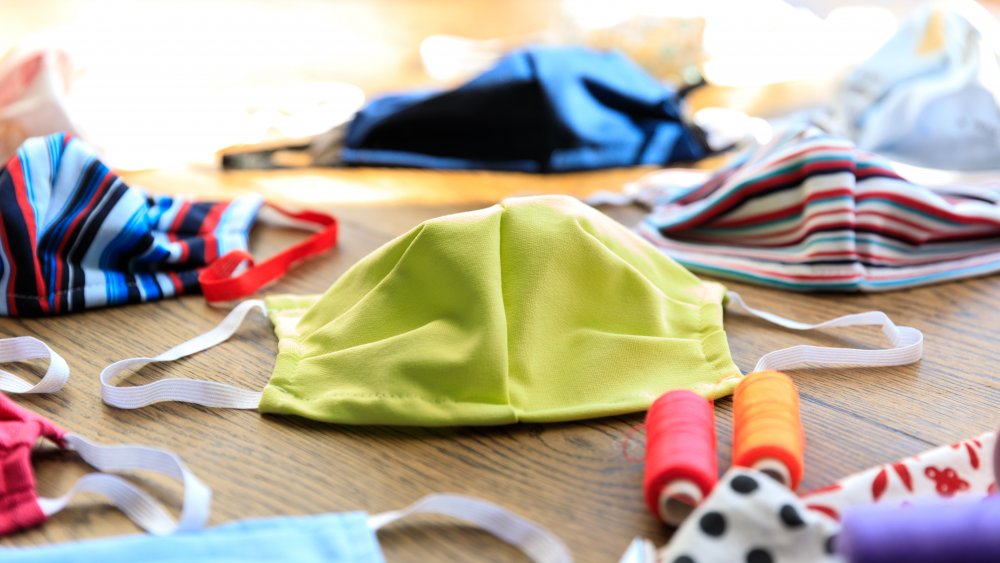The Truth About Copper Face Masks
It wasn't long ago that shortages of personal protective equipment had us making our own face masks. Now, a number of non-medical face masks are on the market with even Disney getting in on what has quickly evolved from simply a way to help prevent the spread of COVID-19, and now it's also a fashion trend. One type of mask that is seeing a surge of support is copper face masks. Michael Schmidt, a professor of microbiology and immunology at the Medical University of South Carolina explained to Today that copper face masks aren't masks made out of metal but are rather fabric masks infused with copper that feel just like a normal fabric face mask.
What's the big deal with copper and why are these masks selling out so quickly? As noted by The Conversation, copper has been known for its antimicrobial properties since ancient times. A study published in Applied and Environmental Biology reported that "bacteria, yeasts, and viruses are rapidly killed on metallic copper surfaces," a process known as "contact killing."
Can a copper face mask actually protect you more than an ordinary face mask? It depends on who you ask. "[Copper] masks may significantly reduce the risk of hand or environmental contamination, and thereby subsequent infection, due to improper handling and disposal of the masks," found a 2010 study published in PLoS One. Dr. William Schaffner, medical director of the National Foundation for Infectious Disease, however, told Today that he is "dubious" about the claim that copper masks are more effective than regular face masks.
Copper face masks should be cleaned just as much as regular face masks
While copper face masks are certainly safe to wear, it's also important to note that studies have not yet been done to assess exactly how effective copper-enhanced fabric is at neutralizing COVID-19.
Lexie Sachs, the Good Housekeeping Institute's textile director, warned Good Housekeeping that it's hard to tell just how much copper is present in a copper face mask, and that face masks advertised as copper face masks could have very little copper in them. She also said that it's important to keep your mask clean no matter what it's made of.
Schaffner agreed, telling Today that the most important thing is to wear a face mask — regardless of what it's made out of. "We wish to inhibit the spray of the virus from getting to other people, and it's actually the physical barrier that's the most important rather than any concept of inactivation of the virus," he said. "Even if you touch the surface of the mask and do some hand hygiene, that addresses the problem."

